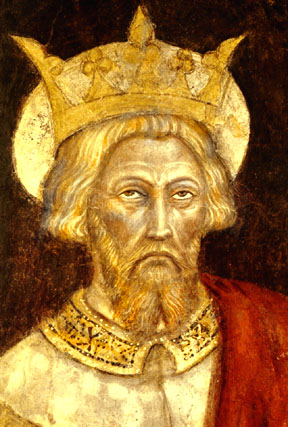THE LIFE OF CHARLEMAGNE
THE MAIN CHARACTER



Charlemagne, the second Carolingian king, brought a new light to the dark stage of Europe. He inherited a kingdom of illiterate farmers and forged it into an empire militarily strong and culturally advanced.
Although responsible for a renaissance of learning, Charlemagne was not a scholar (he did not learn to read until late in life). In fact, the main achievements of his reign – the alliance with the church, the conquest of pagan neighbors, the reform of government machinery and the improvement of scholarship – were all begun in some form by his father. Despite his lack of originality, Charlemagne had the strength and foresight to carry through what his father had begun. Within the borders of the empire there developed a climate favorable to education and the arts which had much to do with the enthusiasm of the ruler himself.
Charlemagne, as the spiritual servant and temporal protector of the pope in Rome, regarded the adoption of Christianity by the pagans as a mission. He forced every one of his subjects to convert or be deported, and to those who rebelled he was merciless. Contemporary historians have seen a strain of inhumanity in this brand of militant Christianity. Yet by these methods Europe emerged more united than before, and while after Charlemagne’s death the empire would split into smaller kingdoms, their rulers would recognize common bonds which were a legacy of the Carolingian king.
Charlemagne was by any standard a great ruler, and his reforms had a direct influence on the cultural and political emergence of western Europe.